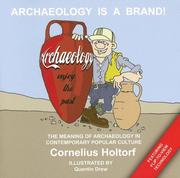| Listing 1 - 10 of 20 | << page >> |
Sort by
|
Book
ISBN: 9781598744057 Year: 2009 Publisher: Walnut Creek Left Coast Press
Abstract | Keywords | Export | Availability | Bookmark
 Loading...
Loading...Choose an application
- Reference Manager
- EndNote
- RefWorks (Direct export to RefWorks)
Periodical
Abstract | Keywords | Export | Availability | Bookmark
 Loading...
Loading...Choose an application
- Reference Manager
- EndNote
- RefWorks (Direct export to RefWorks)
Book
ISBN: 9781629581385 Year: 2015 Publisher: Walnut Creek Left Coast Press
Abstract | Keywords | Export | Availability | Bookmark
 Loading...
Loading...Choose an application
- Reference Manager
- EndNote
- RefWorks (Direct export to RefWorks)

ISBN: 9781598741780 9781598741797 1598741799 1598741780 9781315434094 9781315434063 9781315434070 Year: 2007 Publisher: Walnut Creek Left Coast Press
Abstract | Keywords | Export | Availability | Bookmark
 Loading...
Loading...Choose an application
- Reference Manager
- EndNote
- RefWorks (Direct export to RefWorks)
Archaeology --- Popular culture --- Archaeology in mass media. --- Archaeologists --- Archéologie --- Culture populaire --- Archéologie dans les médias --- Archéologues --- Social aspects. --- Public opinion. --- Aspect social --- Opinion publique --- Archéologie --- Archéologie dans les médias --- Archéologues --- Popular culture.
Book
ISBN: 9781611322163 9781315426327 9781315426303 9781315426310 9781611322170 Year: 2012 Publisher: Walnut Creek Left Coast Press
Abstract | Keywords | Export | Availability | Bookmark
 Loading...
Loading...Choose an application
- Reference Manager
- EndNote
- RefWorks (Direct export to RefWorks)

ISBN: 9781598742336 9781315434179 9781315434148 9781315434155 9781598742343 Year: 2007 Publisher: Walnut Creek Left Coast Press
Abstract | Keywords | Export | Availability | Bookmark
 Loading...
Loading...Choose an application
- Reference Manager
- EndNote
- RefWorks (Direct export to RefWorks)
Periodical
Year: 2007 Publisher: Walnut Creek London ; New York Left Coast Press Routledge
Abstract | Keywords | Export | Availability | Bookmark
 Loading...
Loading...Choose an application
- Reference Manager
- EndNote
- RefWorks (Direct export to RefWorks)
Book
ISBN: 9781598743975 Year: 2010 Publisher: Walnut Creek Left Coast Press
Abstract | Keywords | Export | Availability | Bookmark
 Loading...
Loading...Choose an application
- Reference Manager
- EndNote
- RefWorks (Direct export to RefWorks)
Periodical
Year: 2008 Publisher: Walnut Creek Left Coast Press
Abstract | Keywords | Export | Availability | Bookmark
 Loading...
Loading...Choose an application
- Reference Manager
- EndNote
- RefWorks (Direct export to RefWorks)
Book
ISBN: 9781611322026 Year: 2012 Publisher: Walnut Creek Left Coast Press
Abstract | Keywords | Export | Availability | Bookmark
 Loading...
Loading...Choose an application
- Reference Manager
- EndNote
- RefWorks (Direct export to RefWorks)
filmmaking --- film [performing arts] --- documentaries [document genre] --- archaeology --- Archeology --- documentaries [documents] --- film [discipline]
| Listing 1 - 10 of 20 | << page >> |
Sort by
|

 Search
Search Feedback
Feedback About UniCat
About UniCat  Help
Help News
News